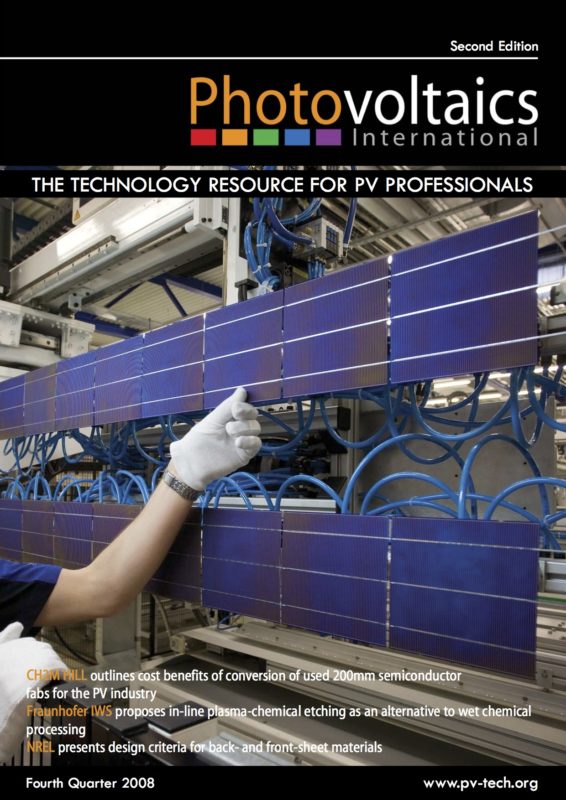By Subhendu Guha, Chairman, United Solar Ovonic; Jon Call, United Solar Ovonic; Uday Varde, United Solar Ovonic,; Alla Konson, United Solar Ovonic; Mike Walters, United Solar Ovonic; Chad Kotarba III, United Solar Ovonic; Tim Kraft, United Solar Ovonic
The reliability of United Solar Ovonic (Uni-Solar) triple-junction amorphous-silicon thin-film photovoltaic modules is critical to their success in an increasingly competitive PV market. Modules must show useful operating lifetimes of 20 to 30 years, and although module efficiency is very important, the total energy that a module will produce largely depends on its operating lifetime. Thus, module reliability must be evaluated to estimate lifetime and establish customer warranty periods. While real-world outdoor exposure testing is necessary and important, accelerated environmental test methods must also be utilized to provide more rapid feedback regarding failure modes, design flaws and degradation mechanisms. The following paper gives an overview of the methodology used to ensure long-term reliability of Uni-Solar flexible thin-film modules.


